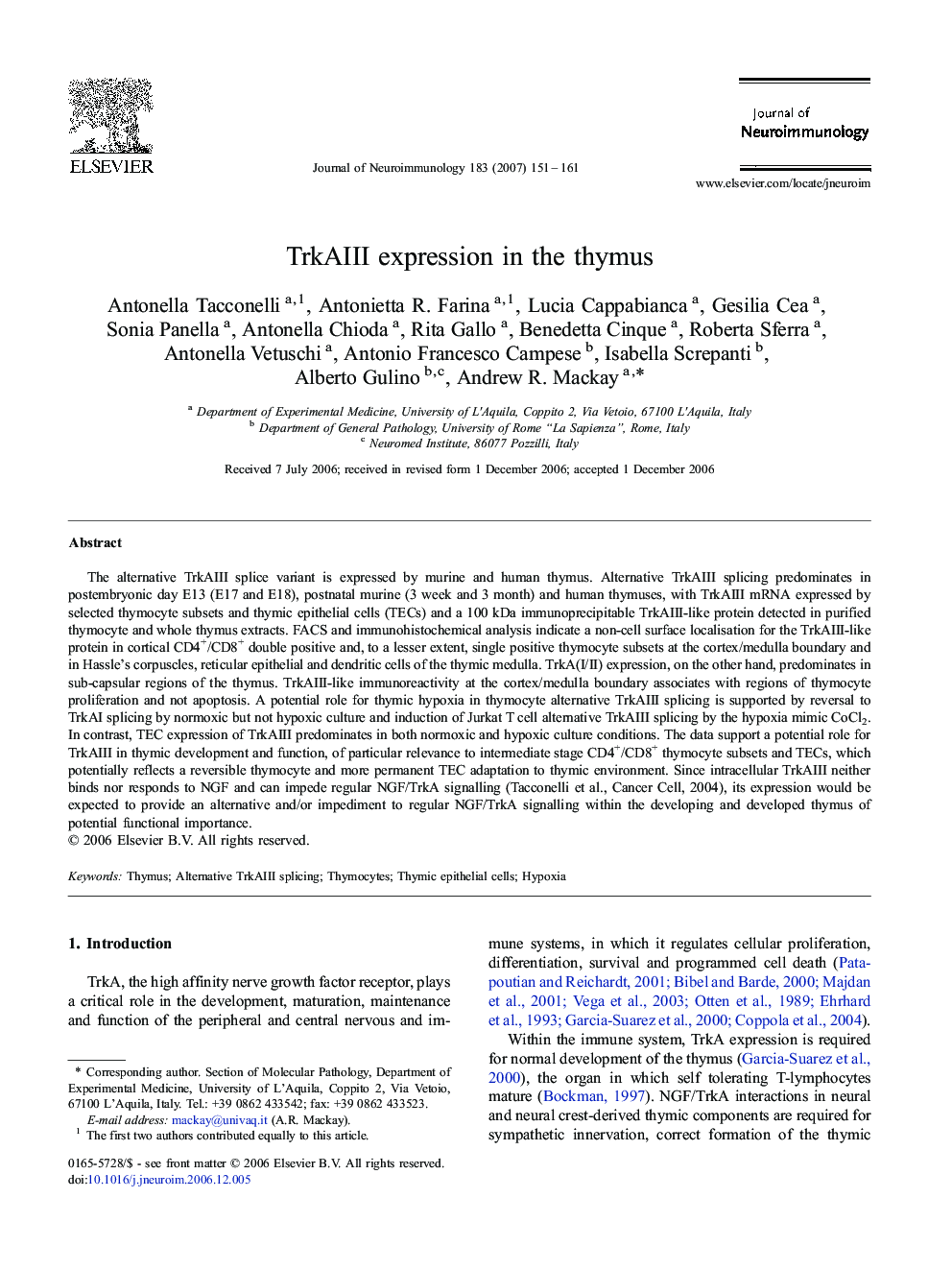| Article ID | Journal | Published Year | Pages | File Type |
|---|---|---|---|---|
| 3065816 | Journal of Neuroimmunology | 2007 | 11 Pages |
Abstract
The alternative TrkAIII splice variant is expressed by murine and human thymus. Alternative TrkAIII splicing predominates in postembryonic day E13 (E17 and E18), postnatal murine (3Â week and 3Â month) and human thymuses, with TrkAIII mRNA expressed by selected thymocyte subsets and thymic epithelial cells (TECs) and a 100Â kDa immunoprecipitable TrkAIII-like protein detected in purified thymocyte and whole thymus extracts. FACS and immunohistochemical analysis indicate a non-cell surface localisation for the TrkAIII-like protein in cortical CD4+/CD8+ double positive and, to a lesser extent, single positive thymocyte subsets at the cortex/medulla boundary and in Hassle's corpuscles, reticular epithelial and dendritic cells of the thymic medulla. TrkA(I/II) expression, on the other hand, predominates in sub-capsular regions of the thymus. TrkAIII-like immunoreactivity at the cortex/medulla boundary associates with regions of thymocyte proliferation and not apoptosis. A potential role for thymic hypoxia in thymocyte alternative TrkAIII splicing is supported by reversal to TrkAI splicing by normoxic but not hypoxic culture and induction of Jurkat T cell alternative TrkAIII splicing by the hypoxia mimic CoCl2. In contrast, TEC expression of TrkAIII predominates in both normoxic and hypoxic culture conditions. The data support a potential role for TrkAIII in thymic development and function, of particular relevance to intermediate stage CD4+/CD8+ thymocyte subsets and TECs, which potentially reflects a reversible thymocyte and more permanent TEC adaptation to thymic environment. Since intracellular TrkAIII neither binds nor responds to NGF and can impede regular NGF/TrkA signalling (Tacconelli et al., Cancer Cell, 2004), its expression would be expected to provide an alternative and/or impediment to regular NGF/TrkA signalling within the developing and developed thymus of potential functional importance.
Related Topics
Life Sciences
Immunology and Microbiology
Immunology
Authors
Antonella Tacconelli, Antonietta R. Farina, Lucia Cappabianca, Gesilia Cea, Sonia Panella, Antonella Chioda, Rita Gallo, Benedetta Cinque, Roberta Sferra, Antonella Vetuschi, Antonio Francesco Campese, Isabella Screpanti, Alberto Gulino,
